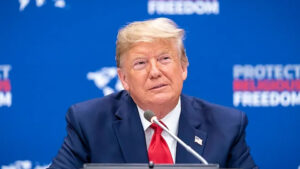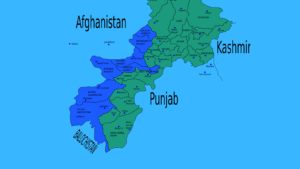Trump Targets Drug Prices in Sweeping New Executive Order

By Galaxy Tribune Staff Writer
Trump Ties U.S. Drug Costs to International Pricing Standards
In a bold move announced from the White House, former President Donald Trump unveiled a sweeping executive order aimed at slashing the cost of prescription medications in the United States. Trump’s plan introduces a “Most Favored Nation” pricing model, which would force pharmaceutical companies to match the lowest price offered for a drug in any developed country. According to Trump, the objective is to lower prescription prices in the United States by at least 59%, with certain cuts potentially reaching 80–90%.
“American patients will no longer pay the highest prices in the world,” Trump declared. “If another country is getting a better deal, then so should we.” He was joined by Health Secretary Robert Kennedy Jr., a controversial figure known for his vaccine skepticism, who will begin negotiating with pharmaceutical companies over the following month.
Trump Criticizes Europe, Labels U.S. Consumers ‘Suckers’
Trump took direct aim at the European Union, accusing it of using coercive tactics to force drugmakers into lowering prices within its borders. This, he argued, shifts the burden onto American buyers.
Trump claimed that the European Union has been brutal in its efforts to bring down the cost of pharmaceuticals. “I was informed by drug firms that the discussions were difficult. They make up for those losses by jacking up prices here. That ends now.”
Trump cited the weight-loss drug Ozempic as an example, claiming its cost is significantly lower in Europe than in the U.S. “It’s time to stop being suckers,” he added.
Industry Pushback and Legal Hurdles Ahead
The pharmaceutical industry pushed back swiftly. The lobbying group PhRMA condemned the plan, claiming that tying domestic drug prices to international rates could hurt American innovation and jobs. In a statement, PhRMA stated that “it would be a bad deal for U.S. patients and employees to import foreign prices from socialist countries.”
Eli Lilly, one of the world’s largest drugmakers, acknowledged pricing issues but shifted the blame to middlemen such as insurance companies and hospitals. A Lilly representative declared that “More than 60 percent of the cost of a drug goes to intermediaries.” “We are excited to collaborate with the administration to fix this flawed system and give patients the savings they deserve.”
Trump’s strategy could face major legal challenges, as did a similar effort during his first term, which ultimately failed to gain traction due to industry resistance.
Critics Claim Pharma Greed Is the Core Issue
Democratic Senator Bernie Sanders sharply criticized Trump’s narrative, rejecting the idea that Europe’s low prices are the problem. “The real problem is the avarice of the pharmaceutical giants, not Europe’s rates,” Sanders said. “By taking advantage of American customers, they earned almost $100 billion in profits last year.”
Despite previous failed attempts to reform drug pricing, Trump signed a separate executive order last month to give states more power to negotiate directly with foreign suppliers, signaling a continued focus on this issue as he campaigns for a return to the White House.
Stay with Galaxy Tribune for continuing coverage on healthcare reforms and U.S. pharmaceutical policy.
You may read more:
Disclaimer
At Galaxy Tribune, we strive to verify the authenticity of every news and insight published. However, since our content comes from various sources and contributors, absolute accuracy cannot be guaranteed. Articles related to health, nutrition, food safety, and environmental concerns serve informational purposes only. Before making decisions based on these topics, readers should consult health professionals, nutritionists, or environmental experts.
Galaxy Tribune offers more than just news. It’s a space for curious minds eager to stay informed and explore fresh perspectives. Thank you for being part of this journey.





